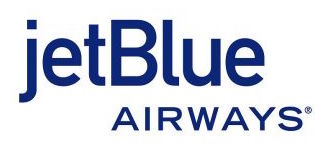
In a blow to the rights of people with disabilities in California and across the country, a second United States federal judge has ruled that state anti-discrimination laws do not apply to airline websites and kiosks. In a closely watched case against JetBlue Airways, Judge Joseph Spero ruled on August 3, 2011 that regulations issued by the United States Department of Transportation — no matter how weak and ineffective — strip away the rights California residents with visual impairments to access and use JetBlue’s website and airport kiosks.
[Note: After this article was originally posted, the JetBlue court decision was appealed. Read the post about the appeal.]
The Judge threw the case out of court on the airline’s motion to dismiss. In doing so, he followed in the footsteps of another federal District Court Judge in California who ruled in April that because of the federal Department of Transportation’s actions, United Airlines was free to have airline check-in kiosks that cannot be used by people with disabilities.
The rulings in the JetBlue and United cases are based solely on very specific regulations and laws governing airlines, and will not affect claims for website or kiosk accessibility in any other public or private sector settings. The rulings do, however, effectively slam the door on the rights of people with disabilities to full inclusion in services or programs offered by airlines. The United States Department of Transportation has failed the country’s citizens with visual impairments, and its failure has now been given the stamp of approval by two federal district courts.
Federal Department of Transportation Shirks Responsibility, Claims Control, and Deprives Blind Citizens of Their Rights
The federal law of preemption when it comes to airline accessibility is arcane and complex, but boils down to a simple question: Has the United States Department of Transportation (DOT) issued regulations that are “pervasive”? If no, people with disabilities are free to pursue rights under state law. If yes, then people with disabilities are not protected by state law and only have whatever rights the DOT has put in the regulations.
In the JetBlue and United cases, the judges ruled that DOT regulations about websites and kiosks were “pervasive” even though they are weak and don’t require accessible websites or kiosks! In the United case, the federal DOT actually wrote to the court agreeing with United’s position that the case should be dismissed.
DOT Airline Kiosk Regulations Do Not Require Accessible Kiosks
The Courts in both the JetBlue and United cases found that the U.S. Department of Transportation had issued pervasive regulations on airline kiosk accessibility, yet those regulations do not require access! Instead, the regulations simply tell airlines that if their kiosks are not accessible, they must provide assistance to customers with disabilities. No details of what that assistance consists of is included in the so-called pervasive regulations.
The Courts’ ruling on airline kiosks, and the DOT’s failure to act, is particularly disappointing because accessible airline kiosks are available for purchase. And kiosks that are accessible to and usable by people with disabilities – from Talking ATMs to self-service postal kiosks deployed in post offices around the country – have been installed for many years. Advocacy on the ground has resulted in accessible kiosks in a variety of settings, and the Department of Transportation regulations have simply not kept pace with current technology.
DOT Airline Website Regulations Do Not Require Accessible Websites
As with airline kiosks, the federal Department of Transportation has thus far refused to require accessible websites, bowing to industry pressure to delay effective regulations. According to the Judge’s ruling in JetBlue, in 2008, the DOT “considered a proposal that would require air carriers to make their websites accessible to the visually impaired, but comments from air carriers and air carrier organizations that such a rule would be too difficult and expensive led the DOT to “defer[] final action” on the proposal and seek additional comments on the matter.”
Instead of requiring websites that people with disabilities can use, the DOT issued a weak regulation “in the interim” requiring that web-only fares be offered on the telephone to people with disabilities who could not access the website. We are now half way through 2011 and there are still no regulations requiring airline websites to be accessible to people with disabilities, although supposedly the DOT is going to issue something soon. Still, the Judge in the JetBlue case found that DOT’s actions, however limited and ineffective, were enough to “preempt” the rights of people with disabilities under state civil rights laws claims.
The DOT has refused to protect the country’s blind citizens from airline discrimination, and now those citizens are unable to seek that protection under state laws.
For a summary, with links, of the other posts on this website about the JetBlue litigation, visit the Litigation Category. Further updates on the JetBlue case will be posted to that category on LFLegal, or you can use the Contact Page on this website to request updates by email. You can also follow the Law Office of Lainey Feingold on Twitter for updates on JetBlue and other web accessibility legal advocacy.